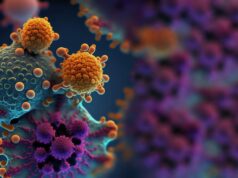
Elicera collaborates with US cancer centre to evaluate iTANK
Elicera Therapeutics is the sole biotech in Sweden developing CAR T-cell therapies. Beyond that, the company has developed a technology – the iTANK platform – with the potential to boost any T-cell receptor therapy – not just Elicera’s. This week, the company announced entering a Material Transfer Agreement with a prominent, still undisclosed, cancer centre based in the US to evaluate iTANK in a novel T-cell receptor therapy targeting skin cancer and lung cancer. BioStock caught up with Elicera’s CEO Jamal El-Mosleh to learn more.
Elicera Therapeutics has been making key advancements in its pursuit to develop novel cell therapies against cancer. The company reached a major milestone last month with the approval from the Swedish Medical Products Agency to start the clinical phase I/IIa study with CAR T-cell therapy candidate ELC-301. The aim of the study is to evaluate the anti-tumour effect, toxicity and tolerability of ELC-301 in patients diagnosed with difficult-to-treat CD20-positive B-cell lymphoma, mantle cell lymphoma or indolent lymphoma, or who have relapsed in the disease.
Read more about this study and its prospected timeline here.
To fund this study, and other pipeline projects, Elicera announced a preferential rights issue that guarantees gross proceeds of at least SEK 27.5 million. This, together with current cash and upcoming grant payments, puts the company in a strong financial position.
The promise of CAR T therapies
CAR T therapies are considered a promising piece of the puzzle in the cancer riddle. Nominated as 2018’s Advance of the Year at ASCO (American Society of Clinical Oncology), CAR T therapies work by genetically modifying T-cells extracted from the patient’s blood. The modification enables the expression of the chimeric antigen receptor (CAR), which is designed to recognise and bind to the specific cancer cells. The redesigned T-cells are then infused back into the patient’s bloodstream, where they can actively seek out and kill cancer cells.
This personalised treatment approach has shown remarkable results in clinical trials, with many patients experiencing complete remission. Six CAR T-cell therapies have, so far, been FDA approved. However, there are major limitations to such therapies. Mainly, they only target blood cancers, not solid tumours. This is because of the harsh tumour microenvironment and very diverse set of tumour antigen targets in solid tumours.
Boosting T-cell therapy potential with iTANK
Elicera has an ace up its sleeve here. The company is arming its CAR T candidates with an immune-boosting platform, called iTANK (immunotherapies Activated with NAP for efficient Killing). Preclinical proof-of-concept data published in Nature Biomedical Engineering in 2022, showed that iTANK-armed CAR T-cells inhibit solid tumour growth and prolong survival compared to conventional CAR T-cells.
A key point of strength for Elicera’s technology is that it can be utilised to arm any T-cell receptor therapy, including those already on the market. This gives iTANK immense commercial opportunity, and its appeal is far-reaching. In fact, Elicera has announced entering a Material Transfer Agreement (MTA) with a prominent, still undisclosed, cancer centre based in the US to evaluate iTANK in a novel CD4-directed T-cell receptor therapy (TCR-T). The therapy will be evaluated in preclinical proof-of-concept studies targeting melanoma and lung cancer.
The studies, which will be funded and conducted by this centre, will evaluate the therapy’s effect on tumour growth and activation of other immune cells in the tumour microenvironment. According to Elicera, once the research findings are published the company will have the right to utilise the data in its internal project development as well as commercialisation activities, including licensing agreements.
CEO insights
This is not the first MTA signed by Elicera regarding iTANK. In 2022, the company came together with the Josep Carreras Leukaemia Research Institute (JCLRI) in Spain to use iTANK for arming CAR T-cells meant for the treatment of Ewing Sarcoma. Read more about that here.
BioStock got in touch with Elicera’s CEO Jamal El-Mosleh to get more details about the new agreement in the US.

Jamal, why is this a significant milestone for Elicera?
– We see a potential to license the iTANK-platform non-exclusively to multiple CAR T-cell developers, meaning that we expect to be able to capitalise on the technology multiple times. Even though this specific collaboration is not a revenue generating licensing agreement with a company, it highlights interest in the iTANK-technology from a prominent cancer centre and symbolises our first iTANK-collaboration in the US. Importantly, this collaboration will explore iTANK in arming T-cell receptor (TCR)- therapies and not just CAR T-cell therapies, thus potentially helping us to penetrate a new market for iTANK.
How does this agreement help put Elicera “on the map,” as you stated in a recent press release?
– Collaborating with a well-known and respected cancer centre in the US is a significant endorsement for iTANK. Such institutions are often at the forefront of medical research and innovation, and their willingness to implement iTANK in research lends considerable credibility to the technology. It acts as a form of validation of iTANK’s potential effectiveness and utility in cancer research and treatment. Also, being associated with a renowned institution can significantly enhance Elicera’s visibility in the oncology community. It opens up networking opportunities with leading researchers, clinicians, and other stakeholders in the cancer treatment ecosystem. This can potentially also lead to further collaborations.
What is the potential financial upside, if any, of such an agreement?
– Elicera retains the right to use data for its own development and commercialisation purposes. The agreement could potentially open up significant licensing opportunities with developers of TCR (T-cell receptor) therapies. By leveraging the collaboration data, Elicera can demonstrate iTANK’s utility and effectiveness, making it an attractive option for TCR-therapy developers looking for advanced arming technologies. Licensing agreements can be a substantial source of revenue, through upfront payments, milestones, and royalties on sales, contributing to Elicera’s financial growth. The need for advanced arming technologies in TCR therapies signifies a substantial untapped market, offering a potentially lucrative revenue stream.
Can you comment on the agreement with the Josep Carreras Leukaemia Research Institute?
– The project is still ongoing, but I cannot comment on it further.
Finally, JCLRI and this US cancer centre are both research institutions. Have major biopharma companies also expressed interest in iTANK?
– Yes, both smaller and larger biopharma companies developing CAR T-cell therapies have shown an interest in the iTANK-platform. We look forward to announcing our first collaboration with a commercial partner even though the precise timeline for such an announcement remains uncertain.
The content of BioStock’s news and analyses is independent but the work of BioStock is to a certain degree financed by life science companies. The above article concerns a company from which BioStock has received financing.

